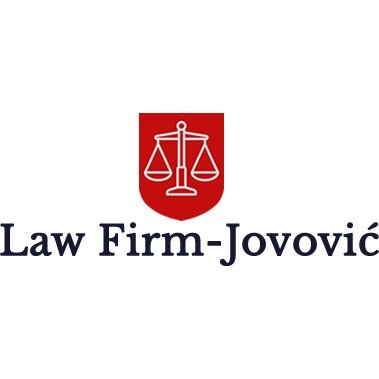Best Administrative Lawyers in Podgorica
Share your needs with us, get contacted by law firms.
Free. Takes 2 min.
List of the best lawyers in Podgorica, Montenegro
About Administrative Law in Podgorica, Montenegro:
Administrative law in Podgorica, Montenegro is a branch of law that deals with the legal principles and regulations governing administrative agencies and their actions. It encompasses the relationship between individuals and the government, including issues concerning administrative processes, procedures, and decision-making.
Why You May Need a Lawyer:
There are several situations where you may require legal help in Administrative law in Podgorica, Montenegro. Some common examples include:
- Challenging administrative decisions
- Seeking compensation for damages resulting from administrative actions
- Navigating bureaucratic processes and procedures
- Obtaining permits or licenses
- Defending against allegations of administrative infractions
Local Laws Overview:
In Podgorica, Montenegro, administrative law is primarily governed by the Administrative Procedure Act. This legislation sets forth the rules and regulations that govern administrative procedures, including the rights and obligations of individuals and the powers of administrative authorities. It also establishes the process for challenging administrative decisions through administrative appeals and provides remedies for individuals who have suffered damages due to administrative actions.
Frequently Asked Questions:
1. What is the timeframe for filing an administrative appeal?
The timeframe for filing an administrative appeal varies depending on the type of decision being appealed. In most cases, you must file the appeal within 15 days from the date of receipt of the administrative decision.
2. Can I represent myself in administrative proceedings?
Yes, you have the right to represent yourself in administrative proceedings. However, it is recommended to seek legal assistance to ensure your rights are adequately protected and to navigate the complex administrative processes effectively.
3. How long does it take to receive a decision on an administrative appeal?
The timeframe for receiving a decision on an administrative appeal varies, and it depends on the complexity of the case and the workload of the administrative body handling the appeal. Generally, you can expect a decision within a few months.
4. Can I request compensation for damages resulting from administrative actions?
Yes, if you have suffered damages due to unlawful or negligent administrative actions, you may be eligible for compensation. You should consult with a lawyer to assess the viability of your claim and navigate the process of seeking compensation.
5. Are administrative decisions subject to judicial review?
Yes, administrative decisions can be subject to judicial review. If you believe an administrative decision was erroneous, unlawful, or unfair, you can file a lawsuit before the Administrative Court within 30 days from the date of the decision.
Additional Resources:
If you require legal advice or assistance in Administrative law in Podgorica, Montenegro, the following resources may be helpful:
- Podgorica Bar Association - Contact them for a list of qualified administrative law attorneys in the area.
- Ministry of Public Administration - Provides information on administrative procedures and regulations.
- The Administrative Court of Montenegro - Offers information on the judicial review process for administrative decisions.
Next Steps:
If you require legal assistance in Administrative law in Podgorica, Montenegro, consider taking the following steps:
- Evaluate the urgency and complexity of your situation to determine if professional legal help is necessary.
- Research and select a reputable lawyer with expertise in Administrative law.
- Contact the chosen lawyer to schedule an initial consultation and discuss your specific case.
- Prepare all necessary documents and evidence to present to the lawyer during the consultation.
- Attend the consultation to receive legal advice tailored to your situation and determine the best course of action.
Lawzana helps you find the best lawyers and law firms in Podgorica through a curated and pre-screened list of qualified legal professionals. Our platform offers rankings and detailed profiles of attorneys and law firms, allowing you to compare based on practice areas, including Administrative, experience, and client feedback.
Each profile includes a description of the firm's areas of practice, client reviews, team members and partners, year of establishment, spoken languages, office locations, contact information, social media presence, and any published articles or resources. Most firms on our platform speak English and are experienced in both local and international legal matters.
Get a quote from top-rated law firms in Podgorica, Montenegro — quickly, securely, and without unnecessary hassle.
Disclaimer:
The information provided on this page is for general informational purposes only and does not constitute legal advice. While we strive to ensure the accuracy and relevance of the content, legal information may change over time, and interpretations of the law can vary. You should always consult with a qualified legal professional for advice specific to your situation.
We disclaim all liability for actions taken or not taken based on the content of this page. If you believe any information is incorrect or outdated, please contact us, and we will review and update it where appropriate.














